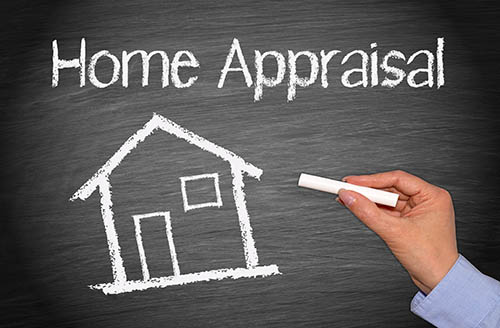The Top House Appraisal Tips For Home Buyers And Sellers
 There are a lot of steps that come with buying or selling a home. One of the routine steps that have to be accomplished is called a home appraisal. When it comes to a home appraisal, this is something that can cause both buyers and sellers to pause for a second. For those who might not know, a house appraisal is where a trained professional will take a look at the fair market value of the home. It is important to understand what happens when a home appraisal is conducted.
There are a lot of steps that come with buying or selling a home. One of the routine steps that have to be accomplished is called a home appraisal. When it comes to a home appraisal, this is something that can cause both buyers and sellers to pause for a second. For those who might not know, a house appraisal is where a trained professional will take a look at the fair market value of the home. It is important to understand what happens when a home appraisal is conducted.
Compare The Home To Similar Properties
When a home appraisal is conducted, its value is usually compared to homes in the area that are similar. The value of a home is always determined by what similar homes in the area have sold for recently. This is what the lender is going to look for. For example, if someone is selling a condo, and the value of that condo is going to be compared to other condos in the building that have sold recently. Even though there might not be identical houses in the area, the same process is going to happen for free-standing homes.
Make Improvements To The Home
For those who are going to be selling their home in the near future, one of the easiest ways to drive up the value of the home is to make improvements. If the countertops, floors, or cabinets have not been updated recently, then performing these updates can drive up the value of a home. In some cases, homeowners might be able to get a bigger increase in the value of their home than the amount of money they spent on the improvements.
Get A Second Appraisal
In some cases, home buyers might not like the appraisal that came in on the home. In this case, they might be able to challenge this first appraisal by getting a second appraisal. Even though this might cost a bit of money, if the home comes back at a significantly reduced cost, then there might be opportunities for the buyer to renegotiate the price of the home. Everyone wants to make sure they are getting a fair deal when a home changes hands.

 With the sometimes high cost of buying and maintaining a home and the concept of being sustainable becoming more popular, many people are considering moving to a smaller home to minimize their impact. It’s important, however, to consider what living small is really like before deciding that it’s the right move for you.
With the sometimes high cost of buying and maintaining a home and the concept of being sustainable becoming more popular, many people are considering moving to a smaller home to minimize their impact. It’s important, however, to consider what living small is really like before deciding that it’s the right move for you. Are you planning on using a mortgage to help cover the cost of a new home? If so, you will want to prepare your finances and figure out how you will manage all those wallet-draining monthly expenses. Let’s take a look at how to run a quick financial health check to ensure you are ready to apply for a mortgage.
Are you planning on using a mortgage to help cover the cost of a new home? If so, you will want to prepare your finances and figure out how you will manage all those wallet-draining monthly expenses. Let’s take a look at how to run a quick financial health check to ensure you are ready to apply for a mortgage.